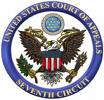 The Seventh Circuit had some interesting commentary on a number of different sentencing factors in United States v. Presbitero (Nos. 07-1129, 07-1610, & 07-1712). Writing for the court, Judge Williams affirmed Presbitero’s conviction of tax offenses, reinstated a codefendant’s conviction, and remanded for resentencing in order to determine whether Presbitero qualified for a leadership enhancement under the sentencing guidelines. Judge Williams concluded by addressing the government’s arguments that the district court took impermissible factors into account when it sentenced Presbitero to a below-guidelines sentence.
The Seventh Circuit had some interesting commentary on a number of different sentencing factors in United States v. Presbitero (Nos. 07-1129, 07-1610, & 07-1712). Writing for the court, Judge Williams affirmed Presbitero’s conviction of tax offenses, reinstated a codefendant’s conviction, and remanded for resentencing in order to determine whether Presbitero qualified for a leadership enhancement under the sentencing guidelines. Judge Williams concluded by addressing the government’s arguments that the district court took impermissible factors into account when it sentenced Presbitero to a below-guidelines sentence.
First, the Seventh Circuit agreed with the government that the expense and stress of protracted litigation could not be considered as a mitigating factor for Presbitero. Since Presbitero spent almost ten years (!) defending charges brought by the government, it is hard to see how anyone could qualify for a sentence reduction based on the burdens of protracted litigation if he does not. The court cited concerns about encouraging defendants to overspend on expensive lawyers as a reason not to treat litigation costs as a mitigating factor. There would also be equitable concerns in giving a sentence benefit to defendants who are able to spend a lot of money on private lawyers. Still, I wonder if the court has given too little regard to the nonfinancial toll of litigation. In some cases, as Malcolm Feeley famously observed in a book of the same title, “the process is the punishment.” Although lawyers may make neat distinctions in their heads between the process by which guilt is determined and the punishment imposed afterwards, many defendants surely experience the process as deeply traumatic and stigmatizing in its own right. In extreme cases, it may not be inappropriate to reduce the length of the formal sentence in recognition of the fact that the defendant has already suffered a great deal prior to the imposition of the sentence.
Second, the Seventh Circuit rejected the government’s contention that Presbitero’s “obstinate behavior” should have been considered an aggravating factor.
By “obstinate behavior,” the government apparently meant the defendant’s failure to make a personal expression of contrition at sentencing; rather than exercising his right to allocute, the defendant chose not to add anything to what his lawyer said. The Seventh Circuit was properly skeptical that this was truly “obstinate,” and distinguished the case from others in which the defendant has continued to assert his innocence at sentencing. Even in the latter cases, the court indicated that a lack of contrition could be, but is not required to be, treated as an aggravating factor.
Finally, the Seventh Circuit rejected the government’s argument that Presbitero’s age (65) could not be considered a mitigating factor. Thus, the district court did not abuse its discretion in finding that the defendant’s age, in combination with other factors, made him unlikely to recidivate.
Other criminal cases last week were:
United States v. Heckel (No. 07-3514) (Sykes, J.) (affirming sentence over various objections; district court correctly applied “mass-marketing” enhancement under sentencing guidelines).
United States v. Griggs (Nos. 06-4211, 06-4212, 06-4271, 07-1940, 07-2012) (Posner, J.) (in trial on conspiracy charges, jurors need not agree on a single overt act).
United States v. Hoke (No. 08-3883) (Ripple, J.) (district court did not abuse discretion in refusing to permit defendant to withdraw his guilty plea; defendant’s right to allocute not violated).
United States v. Taylor (No. 07-4013) (Kanne, J.) (district court did not abuse discretion is declaring mistrial).
United States v. Dodds (No. 08-2458) (Rovner, J.) (affirming various evidentiary rulings by district court).
United States v. Severson (No. 08-1508) (Bauer, J.) (affirming sufficiency of evidence to support conviction on fraud charges, jury instruction, and sentence).

If protesting one’s innocence was an aggravating factor when at the same time (false) confessions are later treated as a hindrance for reopening cases of false conviction, then would a defendant be well-advised to plead guilty each and every time? And what about the true perpetrators that in this way get a second chance to continue? Because for every wrong conviction there’s at least one criminal free to commit more crimes that might have been spotted if a defendant were allowed to speak his heart at any (any!) stage of proceedings.